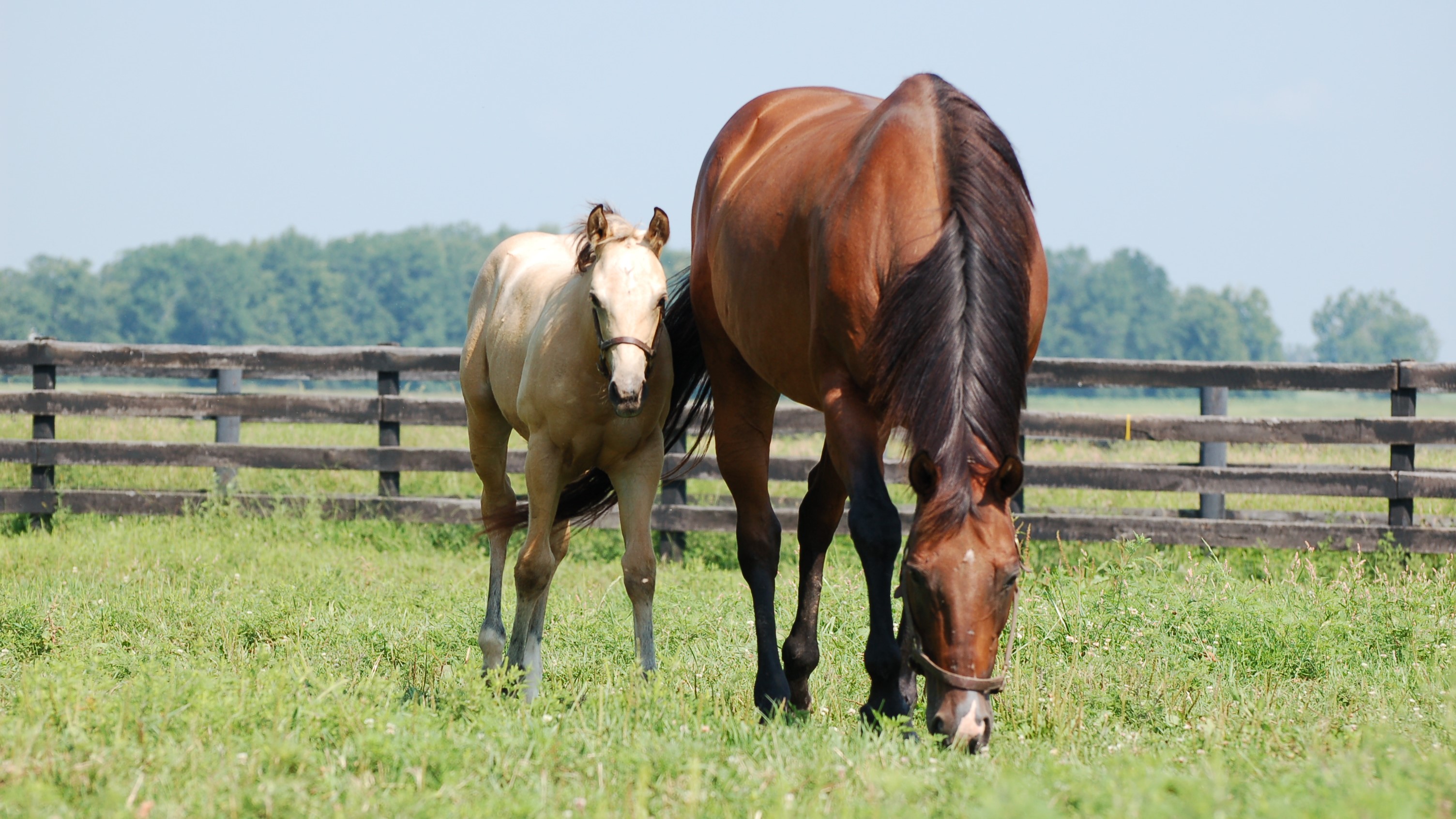University of Kentucky researcher explores natural products to shield foals from life-threatening infections

A new research initiative by the University of Kentucky Martin-Gatton College of Agriculture, Food and Environment is investigating a natural, probiotic-based solution to combat a common bacterial infection that has plagued horse owners, veterinarians and breeders for decades.
Rhodococcus equi infections cause severe pneumonia in young foals, leading to costly treatments, high mortality rates and long-term health impacts on surviving animals. The research, titled “Novel Therapeutics for the Control of Multidrug-resistant Rhodococcus equi in Foals” and funded by the American Quarter Horse Association, could bring meaningful changes to how these infections are managed—reducing reliance on antibiotics and potentially offering a more ecologically sustainable way to protect foals.
“This infection has been a persistent problem for the horse industry, leading to high costs, complicated treatments and heartbreaking losses,” said Yosra Helmy, assistant professor of infectious diseases and microbiology in the Department of Veterinary Science at the Maxwell H. Gluck Equine Research Center at Martin-Gatton CAFE. “By exploring probiotics as a preventative and treatment solution, we aim to shift away from traditional antibiotic treatments and offer horse owners and veterinarians a sustainable approach to protect foals and promote long-term health.”
R. equi impact and challenges
Young foals are highly susceptible to R. equi, typically contracting the bacteria from farm environments. Inhaling particles from soil that harbor R. equi, the foals develop pneumonia, bringing symptoms like fever, labored breathing and lethargy. Without prompt and intensive treatment, infections often become fatal or lead to chronic health issues that can limit horses’ athletic performance as adults.
For horse owners and breeders, R. equi infections present an expensive challenge, with extended treatments, high veterinary costs and economic losses. Compounding the issue, there is currently no available vaccine to prevent R. equi infections—leaving antibiotics as the primary treatment.
Antibiotic treatments, however, come with their own complications. In addition to possible side effects, such as digestive problems, antibiotics are becoming less effective against R. equi due to the rise of antibiotic-resistant strains.
“We’re reaching a point where our options are limited, and R. equi infections continue to have a major impact on the industry,” Helmy said. “Our goal with this study is to develop an approach that improves foal health while reducing the need for antibiotics, paving the way for a healthier future.”
Potential research outcomes
This research project focuses on the potential of probiotics—the “good bacteria” that promote health by balancing bacterial populations in the gut. Widely used for digestive health in humans, probiotics could play a similar role in foals, preventing harmful bacteria from taking hold. The research team has identified specific probiotic strains that appear to offer protection against R. equi and is now conducting laboratory tests to ensure these strains are safe for use in young horses.
“If we can confirm that these probiotics are effective and safe, they could become a valuable tool for horse farms worldwide,” Helmy said. “This would mean fewer infections, reduced reliance on antibiotics and ultimately, a healthier start for foals.”
Antibiotic resistance is very problematic in the fight against R. equi strains, a growing concern in animal and human health as well as other bacterial infections. By offering a natural preventive measure, this probiotic approach could limit the spread of resistant bacteria on horse farms, promoting better health outcomes across the equine industry.
This project’s outcomes are anticipated to have far-reaching impacts. Healthier foals would lead to reduced veterinary costs and greater long-term value for horse owners.
“In addition to the obvious health benefits for foals, we’re excited by the potential for probiotics to support farming practices,” Helmy said. “If successful, this study could be a game-changer for the equine industry and set a new standard for prevention and care”
This content is based upon research funded in-part by the American Quarter Horse Foundation. AQHF fosters innovative equine research and education that leverages collaborative resources with exceptional scientists to address fundamental issues facing both the AQHA membership and the broader horse industry. Opinions expressed within this publication are those of the author(s) and do not necessarily reflect the initiatives or programmatic objectives of the American Quarter Horse Foundation and/or the American Quarter Horse Association.
Credits
Words: Kordan Strickler (Martin-Gatton College of Agriculture, Food and Environment)
Photo: Mark Pearson (Martin-Gatton College of Agriculture, Food and Environment)

